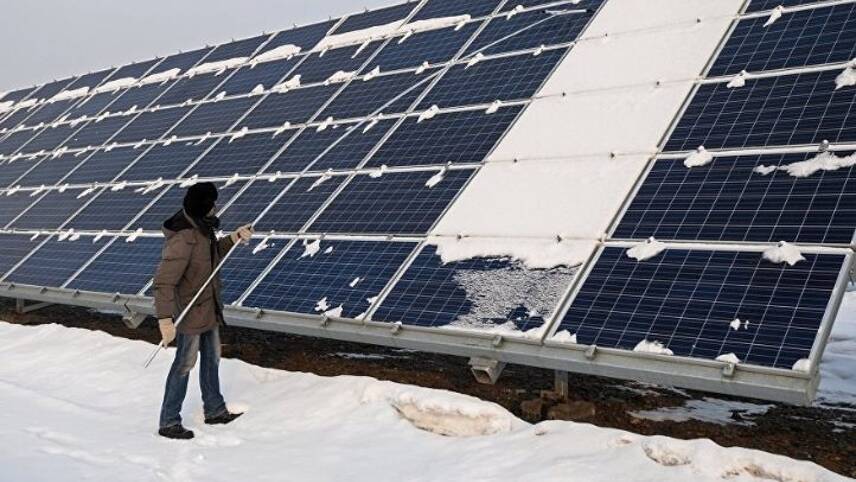Register for free and continue reading
Join our growing army of changemakers and get unlimited access to our premium content

The greatest improvement in reducing the energy consumption of economic growth was recorded in Central Asia and Eastern Europe. Pictured: Kazakhstan's largest solar farm
Published today (11 July), the company’s latest ‘global economy watch’ report reveals that 181kg of oil equivalent was needed to produce $1,000 of global GDP in purchasing power parity (PPP) terms in 1990, compared to 123kg in 2015.
PPP is an economic tool used to compares different countries’ currencies through a “basket of goods” approach, ensuring that minor exchange rate variations do not distort comparisons.
PwC’s report predicts that, as businesses and governments continue to boost their energy efficiency investments and as more renewable energy comes online, producing $1,000 of global GDP in PPP terms will only require 78kg of oil equivalent by 2040.
PwC claims that a shift away from carbon-intense manufacturing processes and towards a more service and tech-based economy across developed nations is also one of the key causes of this trend. In the UK, for example, the service industry accounts for 80% of GDP but just 51% of its energy consumption, while heavy industry accounts for 15% of GDP and 15% of energy consumption also.
However, the greatest improvement in reducing the energy consumption of economic growth was recorded in Central Asia and Eastern Europe. PwC’s study concludes that energy intensity across these regions has fallen by around one-fifth over the past 30 years as services have begun accounting for a greater proportion of GDP and energy efficient technologies have been taken up at scale.
PwC UK’s senior economist Mike Jakeman said the report’s findings present a “positive story for the global economy” as they “suggest that governments and businesses can continue to pursue climate change policies that limit energy consumption without eliminating economic growth”.
“Becoming more energy efficient is crucial in limiting climate change, while also ensuring that the global economy continues to grow and the world’s population becomes prosperous,” Jakeman said.
“However, while improved energy efficiency is very encouraging, it’s only part of the story and needs to be combined with a continual push to reduce emissions.”
It is worth noting that, despite good global progress on the issue, the UK Government has repeatedly been criticised for its approach to energy efficiency policy in recent times. Following a two-month inquiry last winter, MPs on the Business, Energy and Industrial Strategy (BEIS) Committee slammed improvements to building energy efficiency as “far too slow“, leaving the UK off track to meet its fourth and fifth carbon budgets. Similarly, the Committee on Climate Change (CCC) has argued that the UK will not hit its legally binding carbon reduction targets without stronger policies to eliminate all emissions from housing.
In response to the issue, BEIS has decided to create a new directorate, headed up by Ben Golding, dealing exclusively with energy policy – Energy Efficiency and Local Directorate.
Sarah George


Please login or Register to leave a comment.